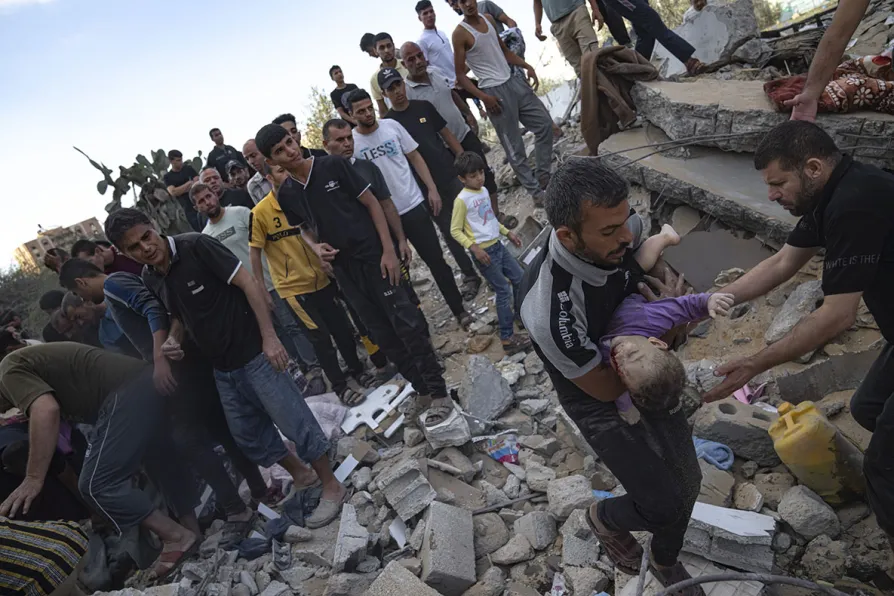‘A bleak day for democracy’ as Britain's political leaders fail to condemn Israeli war crimes

 A Palestinian takes a child out of the rubble after Israeli airstrikes in Khan Younis, Gaza Strip, October 16, 2023
A Palestinian takes a child out of the rubble after Israeli airstrikes in Khan Younis, Gaza Strip, October 16, 2023
BRITAIN’S political leaders failed to condemn Israeli war crimes against Palestinian people today in a “bleak day for democracy.”
Prime Minister Rishi Sunak and opposition leader Sir Keir Starmer gave back-to-back Commons speeches blaming Hamas for Israel’s air strikes and cutting off food and energy supplies to the Gaza Strip.
West-backed Israel declared war and has ordered more than a million Palestinians to evacuate northern Gaza ahead of an anticipated ground offensive after more than 1,400 Israelis were killed in Hamas’s unprecedented attack on Israeli territory on October 7.
Similar stories

Thousands strike to ‘save hostages and stop military escalation’ in Gaza

As Israel breaks ceasefire with air strikes on Gaza, killing 400, and ministers backtrack on acknowledging Israeli war crimes, campaigners ask ‘how many more Palestinians will be slaughtered before Britain stops sending arms to Israel?’












